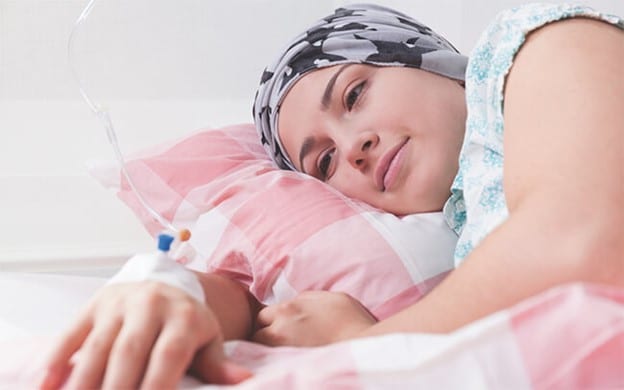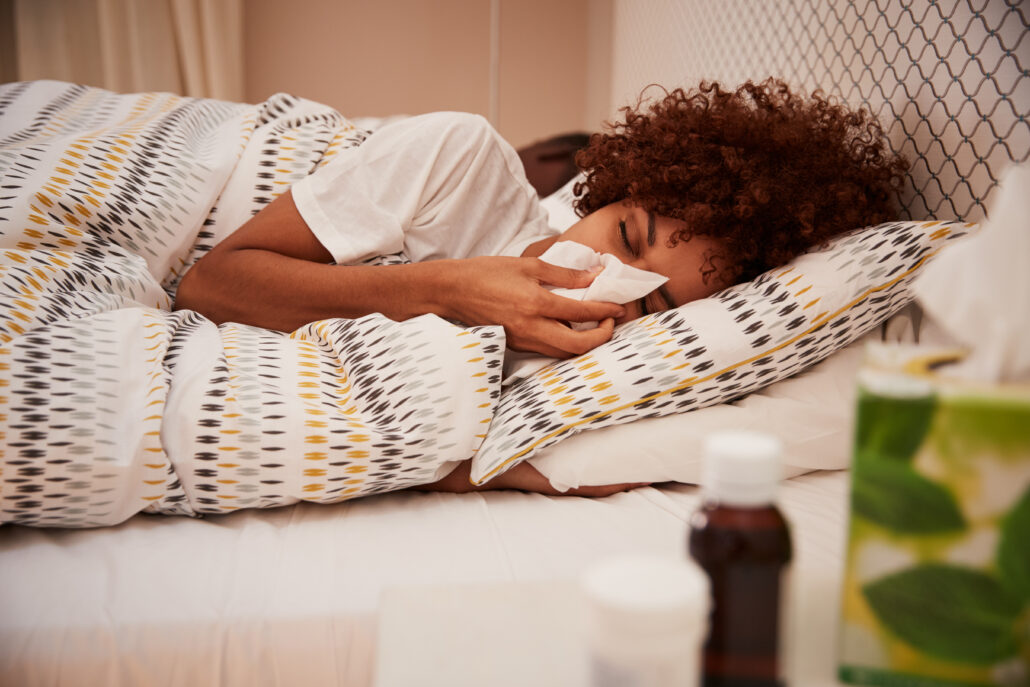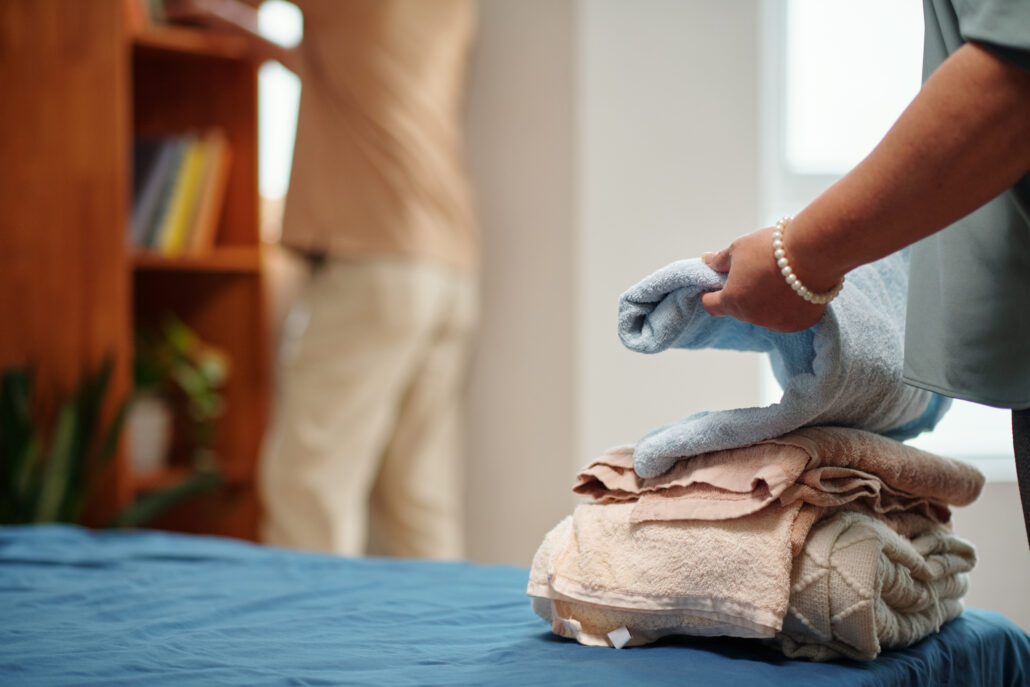While inadequate rest may increase the risk of cancer, restorative sleep is an essential part of its treatment and recovery
BY TERRY CRALLE, RN

Sufficient sleep is considered the cornerstone of health and well-being. Conversely, insufficient sleep has serious health repercussions, including an increased risk of stroke, depression, hypertension, heart attack, diabetes, dementia, obesity, osteoporosis, motor vehicle accidents, and on-the-job accidents and injuries. Recent research has demonstrated even more alarming downsides to sleep deprivation, including an impact on some of the most prolific cancers: breast, prostate, and colorectal.
These are worrisome findings considering that skimping on sleep is all too common in today’s fast-paced, 24/7 world. According to the American Academy of Sleep Medicine, adults “should sleep seven or more hours per night on a regular basis to promote optimal health.” However, data from the Centers for Disease Control and Prevention and others shows that many Americans are not coming close to those recommendations—and at what cost?
The sleep-cancer connection
Our immune systems rely heavily on sufficient sleep to function optimally. Lack of sleep increases inflammation, which in turn increases the risk of cancer and other serious diseases. In fact, researchers have demonstrated that fragmented sleep directly impacts tumor growth. In mice that had disrupted sleep, tumors were twice the size of those in mice that slept normally.
In one study, researchers found a 50% increased risk of colorectal cancer for people sleeping less than six hours per night, while some studies have linked a higher likelihood of stomach and thyroid cancers with short sleep duration. Other research has demonstrated that men with sleep problems are more likely to develop prostate cancer than men who consistently get sufficient sleep. A lack of sleep also has been associated with more aggressive types of breast cancers.
Sleep disruption in cancer patients
As many as 30% to 75% of patients undergoing cancer treatment experience sleep problems. Insomnia and other sleep problems can result from side effects from medications, anxiety, frequent hospitalizations, work schedules, underlying health conditions, and family obligations. Insomnia is about three times more prevalent among cancer patients being treated with chemotherapy than in the general population. The results of a 2014 study found that the prevalence of poor sleep quality in stages I and II cervical cancer patients was approximately twice that of women who don’t have cancer.
Despite the prevalence of sleep problems in cancer patients, one study found only 16% of cancer patients with insomnia informed their health care provider about the problem. In addition, patients, family members, and caregivers may not recognize the significance of these sleep disruptions on successful cancer treatment and recovery, and many patients fail to address their sleep during healthcare provider encounters routinely.

Sleep’s role in cancer recovery
Not only is sleep essential for the physically exhausting and emotionally draining aspects of treatment, but getting restorative sleep during cancer treatment is critical to fighting the disease. Sleep patterns influence levels of the hormones melatonin and cortisol, which can affect cancer progression. Insufficient sleep also leads to a decrease in natural “killer” cells that help fight cancer. According to Dr. David Gozal, a researcher at the University of Missouri, “Fragmented sleep changes how the immune system deals with cancer in ways that make the disease more aggressive.”
One study found colon cancer patients who complained of sleep problems and circadian disruption had worse survival rates. Dr. Amanda Phipps of the Fred Hutchinson Cancer Research Center notes that sleep is controllable for breast cancer patients and that “…sleep may be something we can encourage and promote to help women diagnosed with breast cancer improve their overall health and to potentially improve their prognosis.”
The numerous physical, psychological, and cognitive benefits of sufficient sleep that support cancer treatment and recovery include:
- optimized immune system
- increased energy
- reduced anxiety
- improved pain tolerance
- better memory
- reduction in stress levels
- clarity of thought, improved problem solving, and better judgment
- improved mood, outlook, motivation, and optimism.
Sleep and fatigue issues must be effectively and promptly addressed as they arise. Maintaining close communication with health care providers and optimizing sleep should be key components in all cancer treatment regimens.
Better sleep during treatment
And while research has shown a link between lack of sleep and cancer, it also has been demonstrated that positive sleeping habits can be integral to physical recovery and mental well-being.
For cancer patients with sleep problems, simple changes can make a big difference:
- Maintain consistent bedtime (and wake time) routines.
- Avoid alcohol, which can lead to fragmented sleep.
- Avoid caffeine late in the day.
- Write out a to-do list/worry list every day (but not at bedtime).
- Eliminate noise in the sleep environment by using earplugs, a fan, or a white noise machine.
- Take a warm bath or shower before bed.
- Keep the bedroom dark by using a sleep mask and blackout shades.
- Make the bedroom a sleep sanctuary—serene, uncluttered, and relaxing.
- Invest in a comfortable mattress, pillows, and bedding.
- Turn off all electronics at least an hour before bedtime.
- Keep a journal at your bedside and write down three good things that happened during the day.
- Don’t “try” to fall asleep – instead, make your goal to relax.
- Reading (non-engaging, non-fiction), coloring and knitting are examples of relaxing and pleasant bedtime activities.
- Distract yourself by listening to soft music, an audible book, a podcast, or an app (on a timer).
- If you wake up during the night, don’t check the clock or electronic devices or turn on bright, overhead lighting.
- During hospitalizations, request that caregivers plan your care with the minimum disruptions during sleep.
In addition to healthy sleep habits, discuss appropriate options for improved sleep with your healthcare provider, including:
- individual counseling
- depression screenings
- group therapy/support group
- cognitive behavioral therapy
- adjustment of medications (dosage or timing)
- relaxation and stress-reduction techniques
- nutritional counseling
- stimulus control therapy
- light therapy
- short-term use of a prescription sleep aid
- yoga
- massage
- acupuncture
- acupressure
- Tai Chi
- walking or other prescribed physical activity
Sleep helps your body heal
Sufficient sleep confers incredible health, protective and restorative benefits, but only if you let it. A better outlook, energy level, and quality of life only can be realized by consistently getting the sleep your mind and body need.
Sufficient sleep is a critical component of health, well-being, optimal functioning, and self-care for people of all ages and circumstances. “We need to treat sleep not as an expendable commodity but as an important factor, similar to nutrition,” Gozal says. “Sleep is a life-supportive system. If we don’t respect sleep, we’re at risk of complications and poorer outcomes.”
Consider sleep a “vital sign” and address it at every healthcare provider encounter. Sleep’s critical role in health cannot be overstated: Sleep must be viewed as a fundamental biological need and prioritized accordingly.
For more information, visit the American Cancer Society website at https://www.cancer.org/treatment/treatments-and-side-effects/physical-side-effects/sleep-problems/managing-sleep-problems.html, https://www.cancer.org/treatment/survivorship-during-and-after-treatment/be-healthy-after-treatment/physical-activity-and-the-cancer-patient.html
and the National Cancer Institute at https://www.cancer.gov/about-cancer/treatment/side-effects/sleep-disorders-pdq#:~:text=Key%20Points%20Treating%20sleep%20disorders%20may%20include%20supportive,medicines%20may%20be%20used%20for%20a%20short%20time.
Terry Cralle, RN, is a registered nurse, certified clinical sleep educator, and health and wellness spokeswoman for the Better Sleep Council. Check out her website at TerryCralleRN.com.



